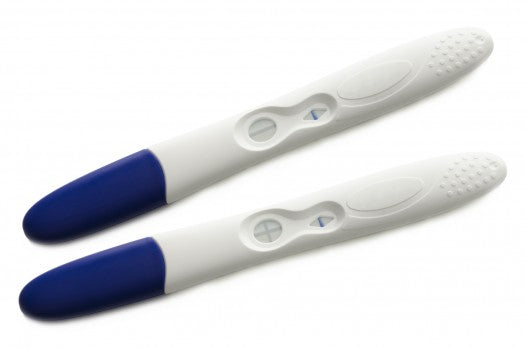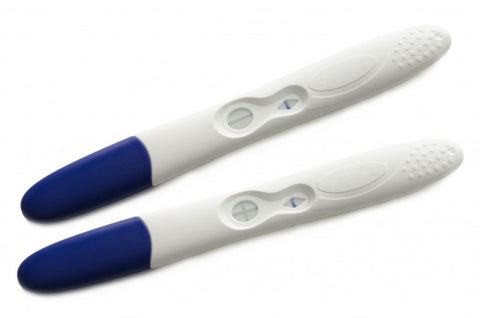
How Accurate Are Home Pregnancy Tests?
Home Pregnancy Tests (HPTs)
Home pregnancy tests measure the presence of the hormone hCG in a woman's urine. HCG (human chorionic gonadotropin) is a glycoprotein hormone secreted by the developing placenta shortly after fertilization. Most doctors recommend that you wait until the first day of your missed period before taking a home pregnancy test. This is usually about two weeks after conception.
However, some pregnancy tests are more sensitive than others and can be taken earlier. Home pregnancy tests are around 97% accurate when done correctly. The sensitivity of a pregnancy test determines how soon after conception, pregnancy can be detected by the diagnostic kit.
Pregnancy tests with a sensitivity of 20 mIU/ml are more sensitive than tests with 50 to 100 mIU/ml. Tests which can detect levels of hCG as low as 20 - 25 mIU/ml tests are ideal for early detection of pregnancy. That means you can begin testing accurately as early as eight days after conception. Conception may take place several days after the date of intercourse, so the date of intercourse should not be viewed as the necessary day of conception.
In ideal conditions, home pregnancy tests are 97% percent accurate. More often than not these few inaccuracies due to errors in application or failure to follow instructions with care.
Follow these easy instructions for best results using home pregnancy tests:
- First-Morning urine is the ideal sample for accurate home pregnancy results.
- Remember not to drink large volumes of water before sleeping or during the night. This will dilute the urine sample that you have to collect in the morning. Also, it is advisable to hold your urine for a while before testing for pregnancy.
- Be sure to read all the instructions on the home pregnancy tests and follow them to the letter.
- Be alert and do not interpret the test results after the allotted test "Reaction Time". These are usually incorrect results.
- Whether you are using the dip test strip or the midstream test, you must use precision. For best results, allow sufficient urine saturation of the test strip or midstream tip as per test instructions. Also, pay attention that the liquid does not touch the test area (where you read results). For test strips, do not dip the strip below the submersion marker or arrow line. For midstream tests, hold the test so the test area (window) is facing away from your stream of urine.
- Avoid "Evaporation Lines" by reading test results within the allotted reaction time before they can be formed.
- If you are taking medications, especially fertility medications, consult your physicians to make sure that they do not interfere with pregnancy test results. The only medications that can cause a false positive on a home pregnancy test are those that contain hCG itself.
Tags:
About Pregnancy Tests
Quick links
Search
Contact Us
Shipping Information
Helpful Info
Terms of Service
Privacy Policy
Do not sell my personal information
Contact us
About us
BabyHopes.com is a family owned and operated business, opened in January 2001. We have been serving the trying to conceive community for over 20 years.


Leave a comment: